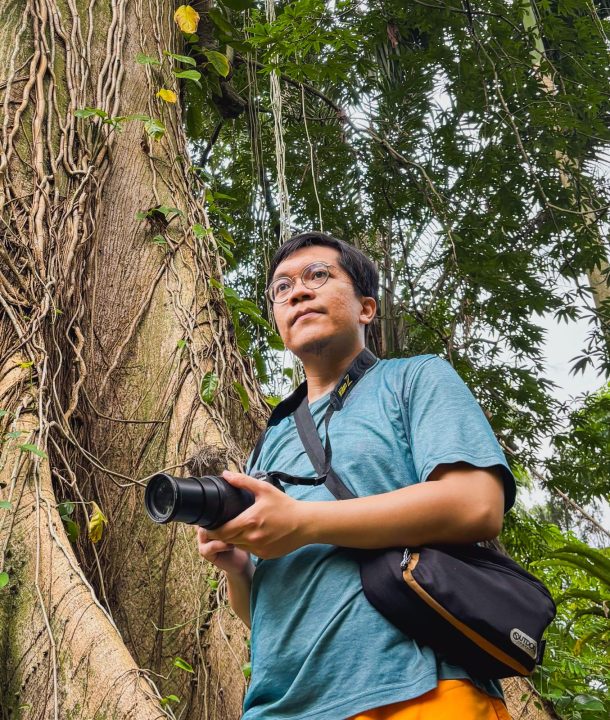スタッフ紹介 / 専任教員
OPHINNI, Youdiil

- 部門・職位
- 環境共生研究部門
特定助教 - 専門
- Virology, infectious diseases, area genomics
- 研究分野/キーワード
- metaviromics, viral spillover, environmental metagenomics, HIV/AIDS, Indonesian area studies
- 連絡先
- yophinni@cseas.kyoto-u.ac.jp
OPHINNI, Youdiil
研究概要
Vulnerable nexus in the Anthropocene: A “One Health” study of viruses at Indonesia's desecrated nature-human interface
Viral zoo- and anthroponotic transmission have been responsible for deadly epidemics in animals (H5N1 'bird' flu, H1N1 'swine' flu, Ebola) and humans (HIV/AIDS, SARS, rabies). Concerningly, viral spillover events are increasing in frequency. Five deadly zoonotic pandemics have happened in the past century. Indeed, COVID-19 is only one example of how human actions have broken ecological stability in this Anthropocene epoch. A paper published in 2022 in the journal Nature projected that anthropogenic climate change will intensify cross-species spillover due to habitat shifts of viral reservoirs (such as bats and rodents). Tropical regions bear a disproportionately large burden of climate change, and thus, Indonesia is among the hottest of hotspots for viral spillover.
Indonesia is the second most biodiverse country in the world. Wildlife and humans have cohabitated for ages in the ecological nexuses of the 17,000-island nation, with approximately 2,300 indigenous communities depending on unsullied nature. However, since the New Order, land grabbing and systemic depletion of indigenous rights have occurred via mass transmigration and widespread deforestation. Habitat destruction threatens biodiversity in Indonesia, which now has the second highest number of endangered species worldwide. Currently, more than ever, the ecological interfaces in Indonesia are seriously threatened by government and enterprise invasions, which may intensify during the next 5-10 years due to large scale projects: capital city relocation and the nickel mining boom.
"How can we address the vulnerability of ecological interfaces in the face of drastic anthropogenic damage?" Measuring viral spillover events in Indonesia may indicate the extent of such damage. Building on the transdisciplinary approach promoted by CSEAS, I hope to elucidate the negative impact of human growth on viral ecology as previous researchers have done to show the clear climate impact. As human growth is inevitable, understanding spillover risks and potential domino impacts to all living beings requires urgent prioritization of the One Health approach in policymaking, akin to the decoupling of economic development.
Indonesia is the second most biodiverse country in the world. Wildlife and humans have cohabitated for ages in the ecological nexuses of the 17,000-island nation, with approximately 2,300 indigenous communities depending on unsullied nature. However, since the New Order, land grabbing and systemic depletion of indigenous rights have occurred via mass transmigration and widespread deforestation. Habitat destruction threatens biodiversity in Indonesia, which now has the second highest number of endangered species worldwide. Currently, more than ever, the ecological interfaces in Indonesia are seriously threatened by government and enterprise invasions, which may intensify during the next 5-10 years due to large scale projects: capital city relocation and the nickel mining boom.
"How can we address the vulnerability of ecological interfaces in the face of drastic anthropogenic damage?" Measuring viral spillover events in Indonesia may indicate the extent of such damage. Building on the transdisciplinary approach promoted by CSEAS, I hope to elucidate the negative impact of human growth on viral ecology as previous researchers have done to show the clear climate impact. As human growth is inevitable, understanding spillover risks and potential domino impacts to all living beings requires urgent prioritization of the One Health approach in policymaking, akin to the decoupling of economic development.